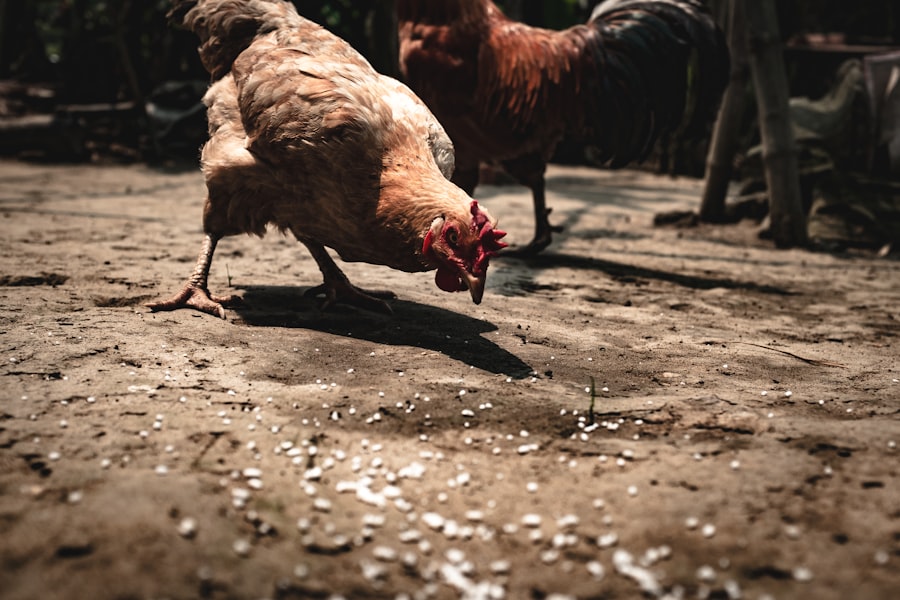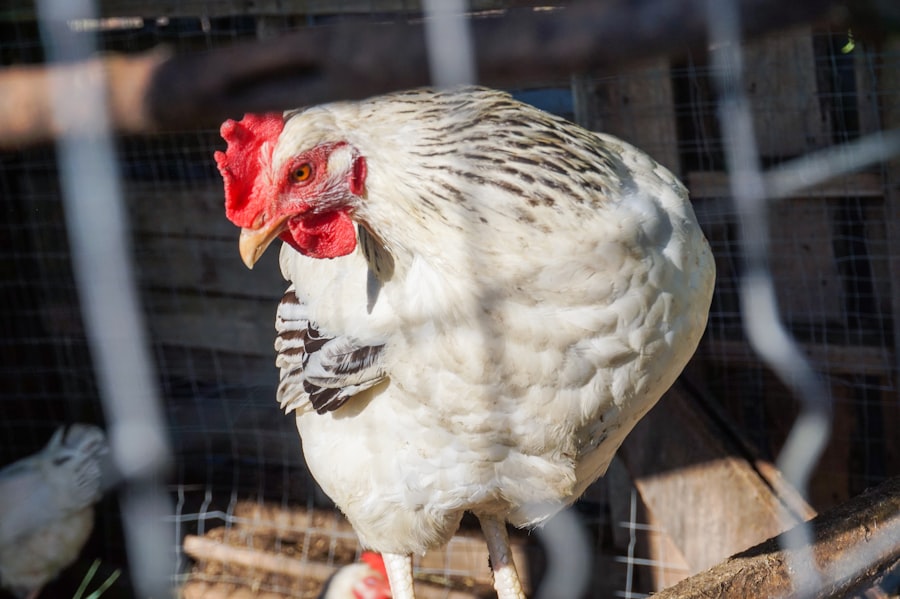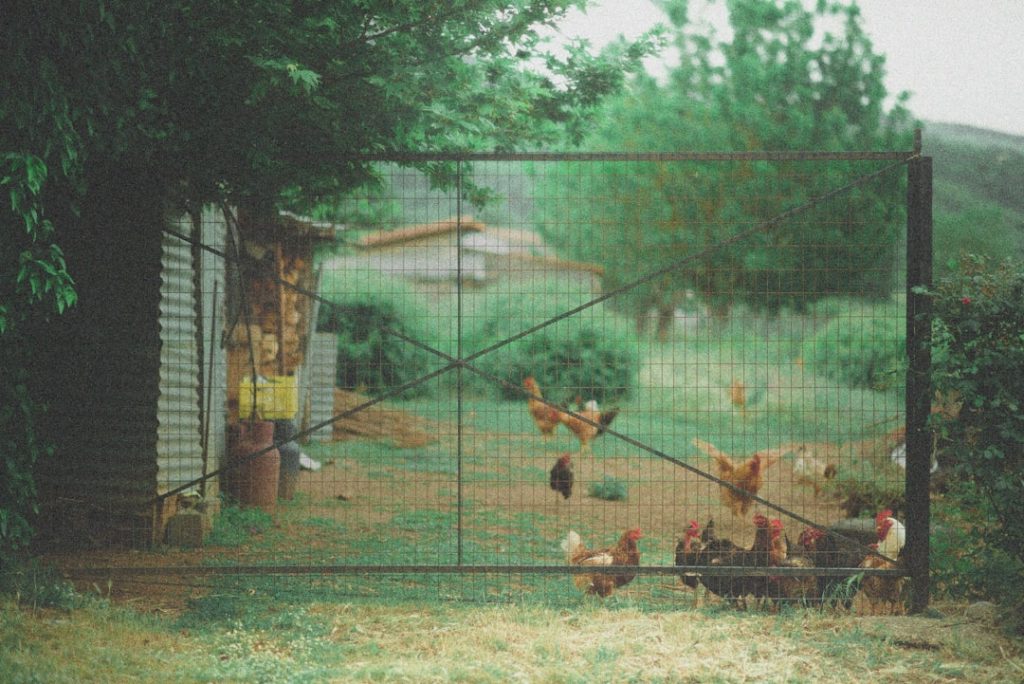When establishing a chicken-keeping operation, several initial setup costs must be considered. The primary expense is a suitable coop or housing for the chickens, which can range from a basic DIY structure to a more elaborate pre-fabricated design, depending on budget and flock size. Essential equipment includes feeders, waterers, nesting boxes, and roosting bars.
Fencing may be necessary to create a secure outdoor area for the chickens, and bedding material is required for the coop. Beyond the physical setup, there are additional initial expenses to account for. These include the cost of purchasing the chickens themselves, whether as chicks or adult hens.
Basic medical supplies and first aid equipment are advisable to address potential health issues. Depending on local regulations, permits or licenses may be required for keeping chickens, which can incur additional fees. Careful consideration and budgeting for these initial setup costs are crucial to ensure adequate preparation for chicken keeping.
By addressing these expenses upfront, prospective chicken keepers can create a suitable environment for their new flock and comply with local regulations.
Table of Contents
Key Takeaways
- Initial setup costs include purchasing a coop, feeders, waterers, and heat lamps.
- Housing and coop expenses involve maintenance, bedding, and potential repairs or upgrades.
- Feeding and watering expenses cover the cost of chicken feed and water, which can vary based on the number of chickens.
- Health and veterinary costs may include vaccinations, medications, and potential vet visits.
- Egg production expenses encompass the cost of collecting and storing eggs, as well as any additional nesting materials or supplements.
- Miscellaneous expenses can include predator protection, entertainment, and other unexpected costs.
- The total cost of keeping chickens is the sum of all the above expenses and can vary based on the number of chickens and their specific needs.
Housing and Coop Expenses
Bedding Material and Coop Maintenance
Once you have covered the initial setup costs, it’s important to consider the ongoing expenses associated with housing and maintaining a coop for your chickens. One of the primary ongoing expenses is bedding material for the coop, which will need to be replaced regularly to ensure a clean and healthy living environment for your chickens. Additionally, you will need to budget for regular maintenance and repairs to the coop, such as replacing worn-out roofing or repairing any damage caused by predators.
Cleaning Supplies and Equipment
It’s also important to consider the cost of cleaning supplies and equipment needed to keep the coop in good condition.
Heating and Lighting Expenses
Another ongoing expense to consider is the cost of heating and lighting for the coop, particularly during the colder months. Depending on your climate, you may need to invest in heating equipment to keep your chickens warm and comfortable during the winter. Similarly, you may need to invest in lighting to ensure that your chickens receive enough light each day, particularly if they do not have access to natural sunlight.
By carefully budgeting for these ongoing housing and coop expenses, you can ensure that your chickens have a safe and comfortable living environment year-round.
Feeding and Watering Expenses

Feeding and watering expenses are another important consideration when it comes to keeping chickens. The cost of chicken feed can vary depending on the type and quality of feed you choose, as well as the number of chickens in your flock. Additionally, you may need to budget for supplements or treats to ensure that your chickens receive all the nutrients they need to stay healthy and productive.
It’s important to carefully consider the nutritional needs of your chickens and choose feed that meets those needs while staying within your budget. In addition to feed, you will also need to budget for the cost of water for your chickens. This may include investing in waterers that provide a constant supply of fresh water, as well as any necessary equipment or supplies for water purification or treatment.
It’s important to ensure that your chickens have access to clean, fresh water at all times to prevent dehydration and maintain their overall health. By carefully budgeting for feeding and watering expenses, you can ensure that your chickens receive the nutrition and hydration they need to thrive.
Health and Veterinary Costs
Just like any other pets, chickens require regular health care and veterinary attention to ensure that they remain healthy and free from disease. It’s important to budget for routine veterinary care, such as vaccinations and check-ups, as well as any necessary medications or treatments for common chicken ailments. Additionally, you may need to budget for emergency veterinary care in case of injury or illness.
By being prepared for these potential health and veterinary costs, you can ensure that your chickens receive the care they need to live long and healthy lives. In addition to veterinary care, it’s also important to consider the cost of preventative measures to keep your chickens healthy. This may include investing in parasite control products, such as dewormers or mite treatments, as well as biosecurity measures to prevent the spread of disease within your flock.
By carefully budgeting for these health and veterinary costs, you can ensure that your chickens remain healthy and disease-free.
Egg Production Expenses
If you are keeping chickens for their eggs, it’s important to consider the expenses associated with egg production. One of the primary ongoing expenses is the cost of feed, as laying hens require a high-quality diet to support egg production. Additionally, you may need to budget for supplements or additives specifically designed to support egg production and overall hen health.
It’s important to carefully consider the nutritional needs of laying hens and choose feed that meets those needs while staying within your budget. Another expense to consider is the cost of nesting boxes and bedding material for collecting and storing eggs. You may also need to invest in egg cleaning supplies and equipment to ensure that your eggs are clean and safe for consumption.
Additionally, if you plan to sell eggs, you will need to budget for packaging materials and marketing expenses. By carefully considering these egg production expenses, you can ensure that your hens remain healthy and productive while also managing the costs associated with egg collection and distribution.
Miscellaneous Expenses

Protecting Your Flock
You may need to budget for pest control measures to protect your flock from predators or pests that can threaten their health and safety. Additionally, you may need to invest in equipment or supplies for managing waste and maintaining a clean living environment for your chickens.
Specialized Equipment and Supplies
It’s also important to consider the cost of any additional equipment or supplies needed for specific breeds or types of chickens, such as heat lamps for brooding chicks or specialized feeders for larger breeds.
Insurance and Liability Coverage
Another miscellaneous expense to consider is the cost of insurance or liability coverage for keeping chickens on your property. This can help protect you financially in case of unexpected events or accidents involving your flock.
Planning for Ongoing Costs
By carefully considering these miscellaneous expenses and budgeting accordingly, you can ensure that you are fully prepared for the ongoing costs associated with keeping chickens.
Total Cost of Keeping Chickens
When considering all of the expenses associated with keeping chickens, it’s important to calculate the total cost of ownership to ensure that you are fully prepared for the financial commitment. This includes not only the initial setup costs but also the ongoing expenses related to housing, feeding, veterinary care, egg production, and miscellaneous needs. By carefully budgeting for each of these categories, you can gain a better understanding of the total cost of keeping chickens and make informed decisions about whether chicken-keeping is a feasible option for you.
In conclusion, keeping chickens can be a rewarding experience, but it’s important to carefully consider the financial aspects before diving in. By thoroughly evaluating the initial setup costs, ongoing expenses, and total cost of ownership, you can ensure that you are fully prepared for the financial commitment of keeping chickens. With careful planning and budgeting, you can create a safe and comfortable environment for your flock while managing the costs associated with their care and maintenance.
If you’re considering keeping chickens, you may also be interested in learning about large chicken coop ideas. Poultry Wizard has a great article on large chicken coop ideas that can help you understand the costs and considerations involved in providing a suitable home for your feathered friends.
FAQs
What are the initial costs of keeping chickens?
The initial costs of keeping chickens include purchasing a coop, feeders, waterers, bedding, and of course, the chickens themselves. These costs can vary depending on the size and quality of the items purchased.
What are the ongoing costs of keeping chickens?
The ongoing costs of keeping chickens include purchasing chicken feed, bedding, and any necessary medical care. Additionally, there may be costs associated with replacing or repairing coop equipment.
How much does chicken feed cost?
The cost of chicken feed can vary depending on the type and quality of feed purchased. On average, a 50-pound bag of chicken feed can cost between $15 to $30.
How much does medical care for chickens cost?
The cost of medical care for chickens can vary depending on the specific issue and the veterinarian’s fees. It’s important to budget for potential medical expenses when keeping chickens.
Are there any other costs associated with keeping chickens?
Other potential costs associated with keeping chickens may include predator-proofing the coop, purchasing additional equipment for egg collection, and any necessary permits or licenses required in your area.
Meet Walter, the feathered-friend fanatic of Florida! Nestled in the sunshine state, Walter struts through life with his feathered companions, clucking his way to happiness. With a coop that’s fancier than a five-star hotel, he’s the Don Juan of the chicken world. When he’s not teaching his hens to do the cha-cha, you’ll find him in a heated debate with his prized rooster, Sir Clucks-a-Lot. Walter’s poultry passion is no yolk; he’s the sunny-side-up guy you never knew you needed in your flock of friends!







